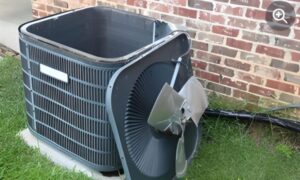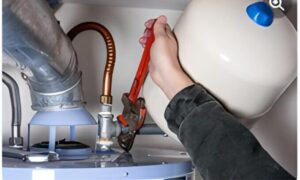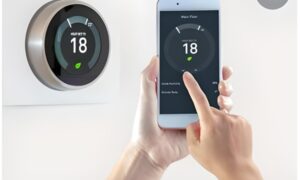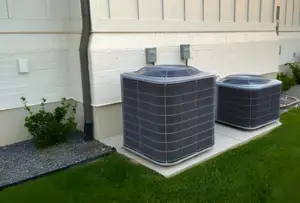When it comes to selecting the perfect air conditioning system, one must carefully weigh the options between ducted and ductless systems. Both have their advantages and considerations, making this decision a crucial one.
Ducted units offer a cost-effective and aesthetically pleasing solution, particularly for spaces with existing ductwork. On the other hand, ductless systems are the go-to choice when ductwork is not feasible, providing flexibility in controlling individual zones.
However, there is a third option – Variable Refrigerant Flow (VRF) systems – that brings advanced HVAC technology into play. But before we delve into the specifics, let’s explore the pros and cons of ducted and ductless systems, as well as the factors to consider when making this important decision.
Pros and Cons of Ducted Systems
Ducted air conditioning systems offer several advantages and disadvantages that should be considered when choosing the right air conditioning system for your needs.
One of the main advantages of ducted systems is their ability to distribute heated and cooled air through a network of ducts, allowing for better airflow and balanced air pressure conditions in larger spaces.
Additionally, ducted systems provide better control over humidity, making them suitable for environments that produce moisture.
Aesthetically pleasing, ducted systems hide all components behind walls, creating a clean and unobtrusive appearance.
Furthermore, maintenance for ducted systems is simpler and less expensive compared to ductless systems.
However, it is important to note that the installation of ducted systems requires existing ductwork and may not be suitable for spaces where ductwork is not feasible or where individual zone control is desired.
Pros and Cons of Ductless Systems
Advantages of ductless air conditioning systems:
- Flexibility in installation, as they do not require ductwork.
- An ideal choice for spaces where duct installation is not feasible.
- Individual control of each air handler, allowing for customized comfort conditions.
- Suitable for environments where dust is a problem, as they do not have ducts that accumulate and spread dust.
Disadvantages of ductless air conditioning systems:
- Higher upfront costs compared to ducted systems.
- May require more frequent filter cleaning and maintenance for optimal performance.
Factors to Consider – Perfect Air Conditioning System
When considering the factors that play a role in choosing an air conditioning system, it is important to take into account various aspects that will impact the overall effectiveness and suitability of the system for your specific needs. Here are three key factors to consider:
- Cooling and Heating Requirements: Evaluate the cooling and heating needs of your space, including factors such as size, insulation, and occupancy. This will help determine the capacity and efficiency requirements of the system.
- Installation Constraints: Consider the availability of space for ductwork and the potential impact on the aesthetics of your space. Ducted systems require sufficient space for duct installation, while ductless systems offer flexibility in terms of placement.
- Energy Efficiency: Assess the energy efficiency ratings of different air conditioning systems to ensure optimal performance and cost savings. Look for systems with high SEER (Seasonal Energy Efficiency Ratio) and HSPF (Heating Seasonal Performance Factor) ratings.
Benefits of Ducted Systems
One significant advantage of utilizing ducted systems for air conditioning is their ability to provide efficient and uniform distribution of conditioned air throughout a space. Ducted systems incorporate a network of ducts that deliver heated or cooled air from a central unit to registers or vents located in different areas of the space.
This ensures that every corner of the room receives the desired temperature, creating a comfortable environment for occupants. The use of ducts allows for precise control of airflow and temperature, ensuring that the conditioned air reaches all areas evenly. This is particularly beneficial in larger spaces or buildings with multiple rooms, where consistent temperature control is crucial.
Additionally, ducted systems can be designed to balance air pressure conditions, preventing drafts and maintaining optimal airflow.
Benefits of Ductless Systems
Utilizing ductless systems for air conditioning offers unique advantages that complement the efficient and uniform distribution provided by ducted systems.
- Flexibility: Ductless systems allow for easy installation in spaces where ductwork is not feasible, providing a solution for older homes, small apartments, and renovations.
- Energy Efficiency: By eliminating the need for ducts, ductless systems reduce energy loss through leaks and improve overall efficiency. Each air handler can be individually controlled, allowing for precise temperature control and further energy savings.
- Improved Indoor Air Quality: Without ducts, there is no accumulation of dust, allergens, or other contaminants that can be spread throughout the space. This makes ductless systems ideal for individuals with allergies or respiratory conditions.
Ductless systems offer a versatile and efficient alternative to traditional ducted air conditioning, making them a popular choice for many homeowners and businesses.
Exploring VRF Systems
VRF systems, also known as Variable Refrigerant Flow systems, offer advanced HVAC technology for efficient and customizable zone control in air conditioning applications. These systems use refrigerant to cool or heat the air and can be installed as either ducted air conditioning units or ductless systems.
VRF systems provide modern controls and are particularly suitable for businesses that require advanced HVAC technology. With VRF systems, it is possible to create separate zones and independently control the temperature and humidity levels in each zone. This level of customization is especially beneficial in office spaces where different areas may have varying heating and cooling requirements.
Importance of Professional Installation
Professional installation is crucial when it comes to HVAC systems, as they are complex and require precise design and installation for optimal performance. Here are three reasons why professional installation is important:
- Expertise: HVAC experts have the knowledge and experience to properly assess your space, determine the right system size, and design a layout that ensures efficient airflow and distribution of conditioned air.
- Safety: Improper installation can lead to safety hazards, such as gas leaks or electrical issues. HVAC professionals adhere to safety standards and regulations to ensure the safe operation of your system.
- Warranty Protection: Most HVAC manufacturers require professional installation for their warranties to be valid. By hiring a professional, you can ensure that your system is installed correctly and protect your investment.
Frequently Asked Questions
What Are the Energy Efficiency Ratings of Ducted and Ductless Air Conditioning Systems?
The energy efficiency ratings of ducted and ductless air conditioning systems vary depending on the specific model and brand. It is recommended to consult with an HVAC expert to determine the most energy-efficient option for your specific needs.
Can Ducted and Ductless Systems Be Used in Both Residential and Commercial Buildings?
Ducted and ductless air conditioning systems can be used in both residential and commercial buildings. The choice depends on factors such as existing infrastructure, space availability, desired level of control, and specific requirements of the environment.
Are There Any Specific Maintenance Requirements for Ducted and Ductless Systems?
Ducted air conditioning systems typically require simpler and less expensive maintenance compared to ductless systems. Ductless systems, on the other hand, may require more regular cleaning of filters and coils to ensure optimal performance and efficiency.
How Do Ducted and Ductless Systems Affect Indoor Air Quality?
Ducted air conditioning systems can affect indoor air quality by providing better control over humidity levels, reducing the spread of dust through ductwork, and allowing for the filtration of air. Ductless systems offer individual control of air handlers, minimizing cross-contamination and promoting healthier indoor environments.
Are There Any Government Incentives or Rebates Available for Installing Ducted or Ductless Systems?
Government incentives and rebates for installing ducted or ductless air conditioning systems vary depending on location and program availability. It is recommended to consult with local authorities or utility companies to determine if any incentives or rebates are currently offered.
Conclusion
In conclusion, choosing the perfect air conditioning system requires careful consideration of factors such as existing ductwork, space requirements, and desired level of control.
Ducted systems are cost-effective, provide better airflow and humidity control, and offer a hidden and low-maintenance solution.
Ductless systems are ideal where ductwork is not feasible, allow for individual control in different zones, and are effective in environments with dust concerns.
For advanced temperature regulation, Variable Refrigerant Flow systems offer zone control capabilities.
Professional installation is essential for proper design and functionality.








